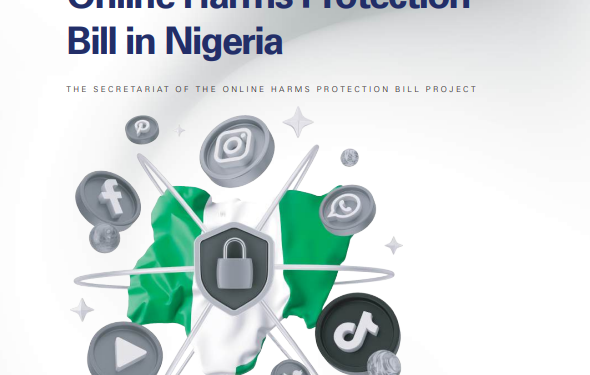The National Information Technology Development Agency (NITDA), in collaboration with Advocacy for Policy and Innovation (API), has unveiled a Whitepaper aimed at addressing the growing challenge of online harms in Nigeria.
The Whitepaper stems from insights gathered during Nigeria’s first-ever Content Moderation and Online Safety Summit, held in July 2022. Hosted by API, an African non-profit organization, the summit focused on fostering digital innovation and creating inclusive policies to address online threats.
The document represents a critical step toward establishing a legal framework to protect Nigerians in the digital space, particularly children and vulnerable groups.
Key Highlights of the Whitepaper
1. Objectives
- National Dialogue: Initiate discussions on balancing online harm regulation with maintaining a vibrant digital ecosystem.
- Policy Development: Provide recommendations for crafting a comprehensive legal framework for online safety.
- Stakeholder Participation: Engage government agencies, civil society, businesses, and the public in shaping the framework.
2. Challenges Addressed
- Prevalence of Online Harms: From cyberbullying to exploitation, the document outlines the pressing need for action.
- Regulatory Gaps: Despite laws like the Cybercrime Act 2015 and the Internet Code of Practice, the evolving digital landscape necessitates a more robust approach.
3. Collaborative Approach
The Whitepaper emphasizes a data-driven, collaborative strategy for addressing online harms, calling for input from stakeholders to refine the framework.
NITDA has invited businesses, civil society organizations, and internet platforms to review the Whitepaper and submit feedback. A dedicated secretariat will collate these inputs, which will inform further stakeholder discussions before drafting the final bill.
- Past Regulatory Efforts: Nigeria has introduced measures such as the Internet Code of Practice (2017), Nigeria Broadcasting Code (2020), and NITDA’s Code of Practice for Interactive Computer Service Platforms (2022).
- Legislative Proposals: Efforts like the Digital Rights and Freedom Bill (2019) and the Social Media Bill have faced criticism over potential constraints on civic space and human rights.
- Future Goals: The Whitepaper aims to create a safer, more inclusive digital environment while supporting Nigeria’s growing digital economy.
This initiative underscores NITDA’s commitment to fostering a secure digital ecosystem in Nigeria. By addressing online harms through collaboration and innovation, the proposed framework seeks to balance safety, freedom, and the growth of Nigeria’s digital economy.










